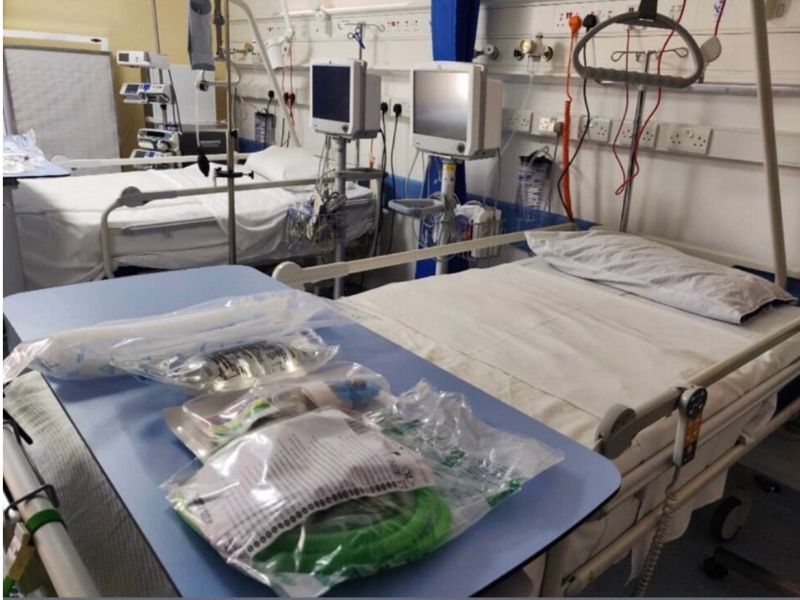Medical personnel and patients at Sant Anna, the ward for the elderly at Gozo General Hospital, are all getting swabbed today to see if they test positive for COVID-19 in line with increasing concerns among the staff about the reliability of the tests and their results, according to medical professionals who spoke to The Shift.
Staff members contacted The Shift to speak about their worries after at least one case where tests for coronavirus resulted positive but then, on retesting, had negative results. This raised questions on the reliability of the test after the first declared death caused by coronavirus – a 92-year-old woman who was at Sant’ Anna.
They pointed out that Sant’ Anna was the hospital ward where it was least expected that any patient would contract coronavirus. No new patients were being admitted and no relatives were allowed in.
The only relatives allowed in were those of a patient who was given the last rites but who had not been tested for coronavirus. The relatives happened to be staff members.
Doctors wear gowns and gloves and there are sanitisers next to every bed. Gloves are available but masks are in short supply.
Soon after, another patient developed flu-like symptoms. Protocol dictates that patients with flu-like symptoms and/or fever are referred to for a swab to test for coronavirus. The staff were not expecting a positive result. Two days later, they were informed that the patient had tested positive.
There are no specialists in infectious diseases in Gozo but there is one respiratory physician.
The Shift is informed that, soon after the test results, the staff were told a mistake had been made and that the patient had, in fact, tested negative for coronavirus.
Then a third patient in the ward – Malta’s first coronavirus related death – developed shortness of breath. Given the nature of her underlying health conditions, this could have been caused by a number of other factors, such as heart failure for example, but a swab was done. She tested positive.
A second test was requested – mainly because of the lack of trust due to the previous mistake – but was refused. The patient was then transferred to the orthopaedic ward, which has been converted into a ward to treat coronavirus cases. Some four days later, she passed away.
Staff members who had taken care of the 92-year-old woman were tested for coronavirus by blood tests – at least four tested positive. However, when swabs tests were done, the results were negative and the staff members were told to report for work as usual, medical staff confirmed.
Staff members also told The Shift that there were other cases patients with flu-like symptoms, but these all tested negative for COVID-19.
The uncertainty of the test results created confusion and more questions – especially for the medical staff in the ward. It is still not clear how the patient contracted the virus when all the tests were negative.
In her daily briefing on Monday, Superintendent of Public Health Charmaine Gauci was asked about a similar situation where a resident at the government home for the elderly St Vincent De Paule had tested positive for coronavirus when swabbed on 9 April, but three subsequent tests – including a blood test – all resulted negative.
Gauci explained that the swab test identified particles of the virus in the throat. “For this test to mark positive, it is important that there is enough of the viral load in the throat to be picked up”.
The health authorities were aware that, after some time, even days later, the tests would be negative. “That is why we say that we repeat the tests up until these no longer result positive as it would indicate that virus would be leaving the body,” Gauci explained.
It was expected that a person would test positive and then eventually test negative. Gauci explained that, at this point in time, blood tests were point-of-care testing. “There are two possible reasons: we are still doing the validation of these tests and also the immune response of the person would not be as strong”.
This could lead to situations where a person would have the virus but their immune system was not enough to be caught by these tests, Gauci said.
The government announced plans to shift the elderly residents to alternative accommodation in mid-April, just one week before the peak of the outbreak is projected in Malta and Gozo. Yet, plans for this move are still unclear – just like the level of investment by Steward Healthcare, who is running the Gozo General Hospital – in dealing with the situation.
The lack of action was also criticised by Shadow Minister Chris Said who told The Shift that the first registered coronavirus case could have been avoided if the relocation promised by Gozo Minister Clint Camilleri last month had gone ahead.
The Gozo Hospital is one of the three State hospitals run by private company Steward Healthcare, which is being paid €70 million per year, or €188,000 per day from the Maltese government.












